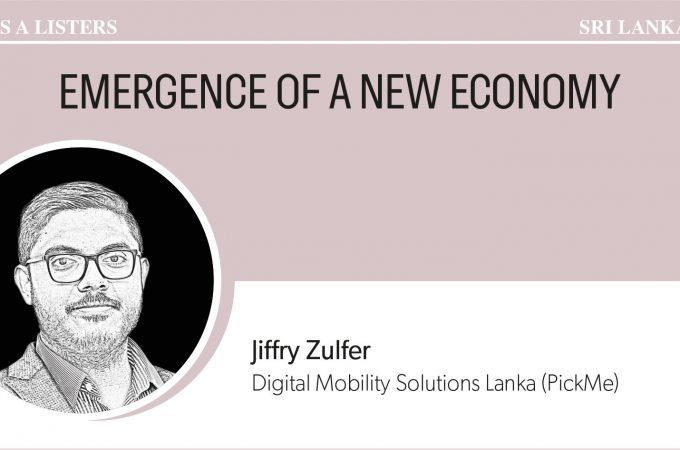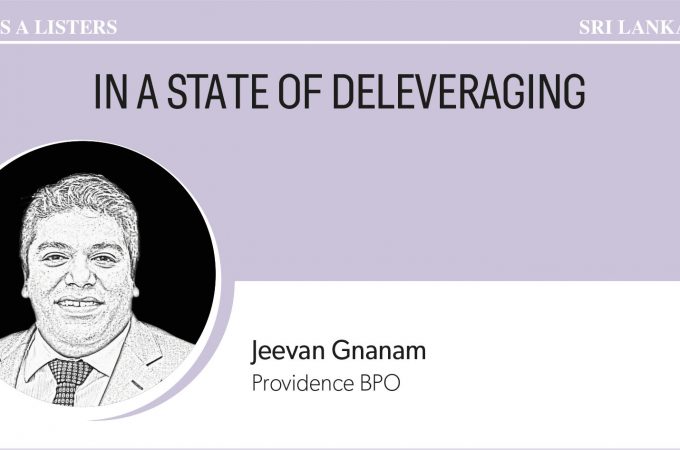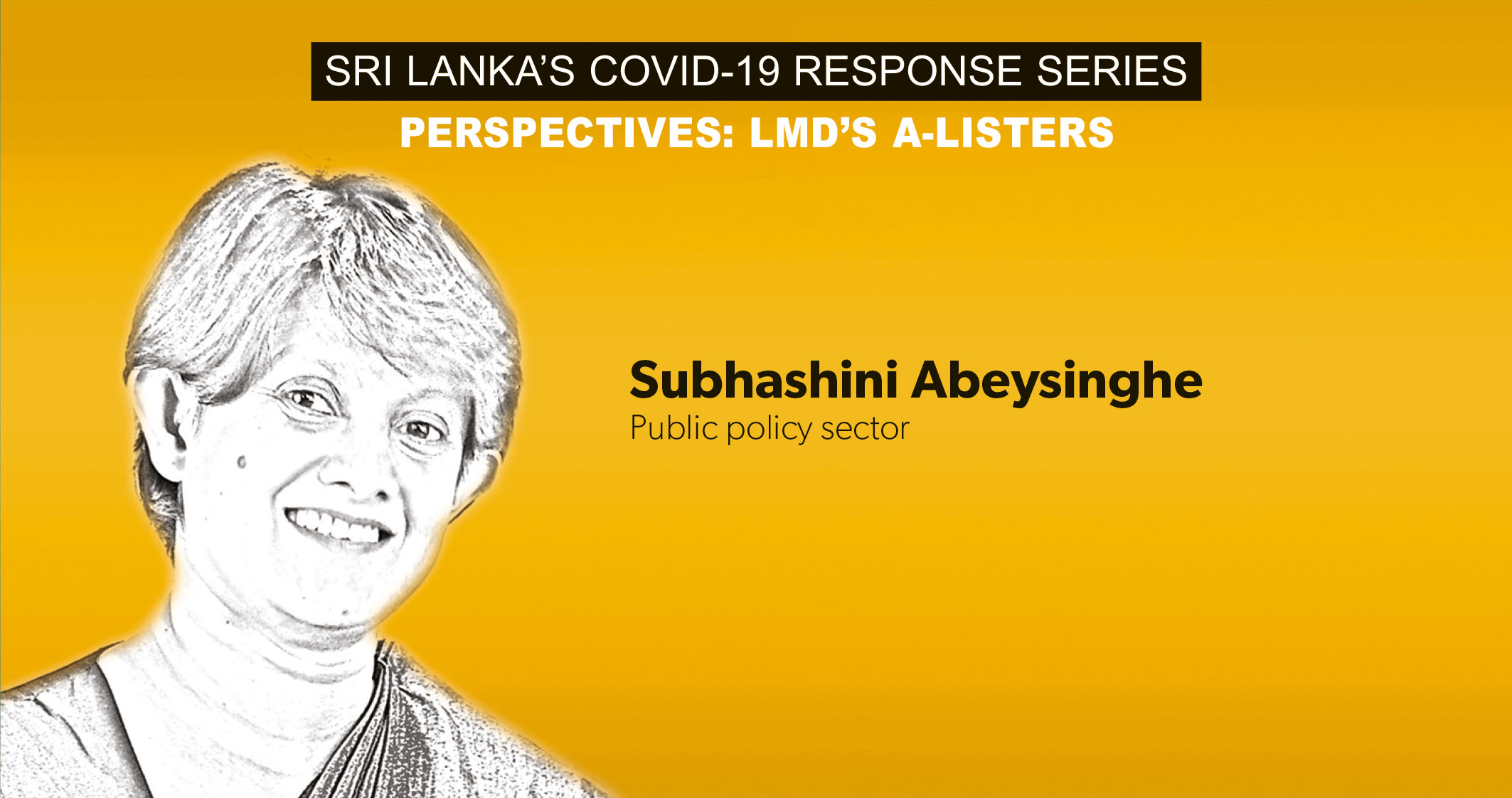FOCUS ON ‘GLOBAL ORIENTATION’
Q: What is the outlook for jobs and employment in the medium term? And how should the authorities address the prospect of rising unemployment?
A: While Sri Lanka has a low number of social safety nets for permanently vulnerable people such as the poor, disabled and elderly, COVID-19 has highlighted the need for a social net for employees who are suddenly made redundant for the short to medium term.
While other Asian countries like Malaysia, Vietnam and South Korea have mechanisms to assist the unemployed for short periods (e.g. three to six months), Sri Lanka is lacking in this regard.
Programmes of this nature are normally combined with assistance to retrain, reskill people and proactively assist them to find employment. Sri Lanka lacks such complementary labour market policies to help workers transition from for example, orthodox sectors with slow growth to digital and electronic dominant segments, which are likely to experience faster growth post COVID-19.
Concomitantly, while there is an argument for strict labour laws to prevent mass unemployment, this can also be detrimental to economic recovery as it will prevent businesses from downsizing and staying afloat, which could jeopardise their longevity and ability to recover once normalcy is restored.
To this end, it is necessary for the state to create complementary labour market policies and safety nets, to mitigate the effects of this crisis and the next. It must focus on the unemployed and contain measures to prevent unemployment in the first place. Sri Lanka is prone to economic shocks other than COVID-19 including natural disasters and social strife. Therefore, neglecting this is no longer an option.
Q: What lessons can the business community learn from this crisis?
A: While the revival of the export sector is a topic that has come to the fore, Sri Lanka has long been out of sync with global trends, lacked dynamism and grown slower than its regional peers. The sector has failed to add substantial value to the national economy because we have failed to quickly respond and exploit opportunities that arise in the global market.
The rise of China as a major trading partner has been a milestone in the 21st century. Yet, compared to other Asian markets whose share of exports to China is over 10 percent, Sri Lankan exports account for less than two percent. The second missed opportunity was the fragmentation of manufacturing value chains where economies began to produce components to contribute to finished products, in which Sri Lanka isn’t a major participant.
COVID-19 will change this landscape significantly, and producers will diversify their supply and sourcing destinations – and reduce their reliance on China and bring their supply chains closer to home.
Countries will promote protectionism and there will be a growing fear of dependence on global trade. A combination of protectionism, lower incomes, and demand for exports will see a shrinking and increasingly competitive export market with a subsequent price crash. These changes create both opportunities and challenges for exporters.
If Sri Lanka is to revive its export sector, it must be quick to respond positively to these changes. Reorienting its export policy to attract investments at this juncture will be crucial. We must be ‘global oriented’ and have the foresight to export products that the international market demands rather than continually playing to strengths of the likes of Ceylon Tea.
ABOUT LMD’S A LISTERS
BOOST TO REAL ESTATE INVESTMENT
 Q: What are your expectations of the business environment in the next 12 months or so? A: With the reduction in interest rates and increase in money circulation, people have a greater tendency to invest in real estate over the money market amidst the pandemic. We have seen similar patterns even in developed markets such…
Q: What are your expectations of the business environment in the next 12 months or so? A: With the reduction in interest rates and increase in money circulation, people have a greater tendency to invest in real estate over the money market amidst the pandemic. We have seen similar patterns even in developed markets such…
EMERGENCE OF A NEW ECONOMY
 Q: How did the pandemic necessitate a digital economy? A: Countries were not prepared for the COVID-19 pandemic’s impact on the economy and people, but it has resulted in the emergence of a new economy and way of life. It is technology, and the spirit of humans to survive and push past boundaries that have…
Q: How did the pandemic necessitate a digital economy? A: Countries were not prepared for the COVID-19 pandemic’s impact on the economy and people, but it has resulted in the emergence of a new economy and way of life. It is technology, and the spirit of humans to survive and push past boundaries that have…
PRIORITISING CRUCIAL SECTORS
 Q: What are your expectations of the business environment in the next 12 months or so? A: I believe that business is not likely to pick up until at least mid-next year for the hospitality sector. Business was nonexistent and as a measure to prevent exorbitant losses, we converted our hotel into a quarantine centre…
Q: What are your expectations of the business environment in the next 12 months or so? A: I believe that business is not likely to pick up until at least mid-next year for the hospitality sector. Business was nonexistent and as a measure to prevent exorbitant losses, we converted our hotel into a quarantine centre…
A POSITIVE AND FLEXIBLE PATHWAY
RELIABLE PARTNERS IN A CRISIS
 Q: In brief, what are the main challenges confronting corporates at this time? A: I think corporates today are besieged with a plethora of problems caused by the prevailing situation. First and foremost is the challenge in keeping their workers safe from COVID-19, and flowing from that is the inability to keep production cycles running…
Q: In brief, what are the main challenges confronting corporates at this time? A: I think corporates today are besieged with a plethora of problems caused by the prevailing situation. First and foremost is the challenge in keeping their workers safe from COVID-19, and flowing from that is the inability to keep production cycles running…
IN A STATE OF DELEVERAGING
 Q: How do you perceive the economic climate at present? A: I would like to really think about the state that the country’s economy is in. Our debt repayments are much higher than our income and this puts Sri Lanka in a state of deleveraging. This recently manifested itself in a 14.2 percent increase in…
Q: How do you perceive the economic climate at present? A: I would like to really think about the state that the country’s economy is in. Our debt repayments are much higher than our income and this puts Sri Lanka in a state of deleveraging. This recently manifested itself in a 14.2 percent increase in…
EVER EVOLVING EXPECTATIONS
 Q: What modern-day challenges do businesses face? A: Information overload – in the new world we live in, there’s never a lack of information. About 2.5 quintillion data bytes are added every day; more data is created in a single day than the combined amount generated over 99 percent of human history. Previous generations of…
Q: What modern-day challenges do businesses face? A: Information overload – in the new world we live in, there’s never a lack of information. About 2.5 quintillion data bytes are added every day; more data is created in a single day than the combined amount generated over 99 percent of human history. Previous generations of…
EXPANDING CREDIT FACILITIES
 Q: What is the bank’s corporate strategy for 2021/22? A: DFCC Bank’s 2021/22 plan is based on our five year strategy for 2020-2025 with the aim of making it one of the most customer centric and digitally enabled banks by 2025. Our lending plans will align with the government’s budget proposals to facilitate the growth…
Q: What is the bank’s corporate strategy for 2021/22? A: DFCC Bank’s 2021/22 plan is based on our five year strategy for 2020-2025 with the aim of making it one of the most customer centric and digitally enabled banks by 2025. Our lending plans will align with the government’s budget proposals to facilitate the growth…
REMAINING IN THE SPOTLIGHT
 Q: What are Sri Lanka Tourism Development Authority’s (SLTDA) priorities for 2021/22? A: The global tourism industry will continue to experience a huge shift in the way of doing business. Our innovative bio-bubble concept launch in January was recognised at ITB Berlin. We hope this will boost traveller confidence. Therapeutic destinations and experiential travelling are…
Q: What are Sri Lanka Tourism Development Authority’s (SLTDA) priorities for 2021/22? A: The global tourism industry will continue to experience a huge shift in the way of doing business. Our innovative bio-bubble concept launch in January was recognised at ITB Berlin. We hope this will boost traveller confidence. Therapeutic destinations and experiential travelling are…






